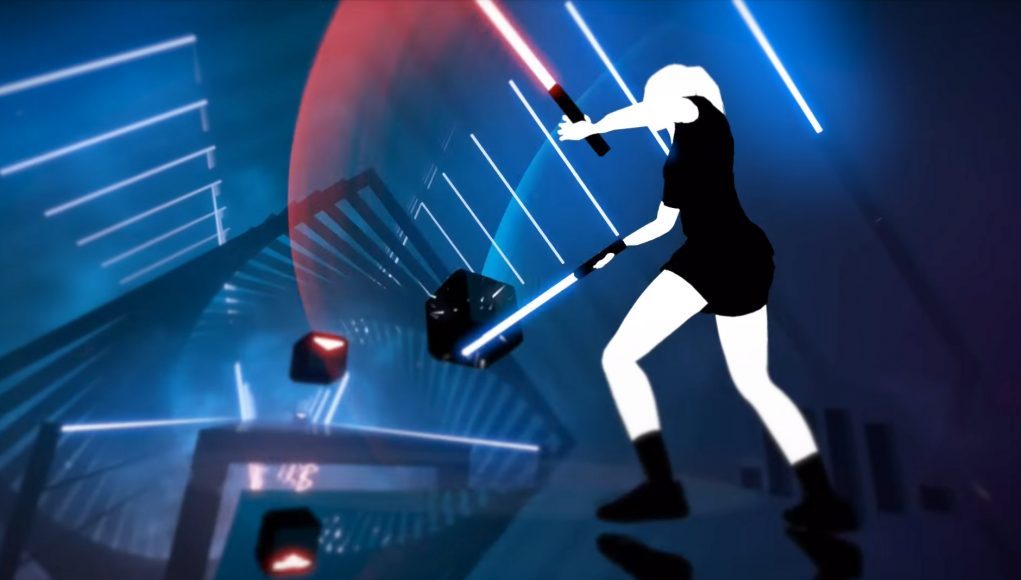At GDC this year, I had a chance to step into Beat Saber, an upcoming rhythm game from Czech Republic-based indie studio Hyperbolic Magnetism that tasks you with slicing flying cubes with lightsabers to electronic dance music. If that sounds cool to you, then you’re in luck. It is cool – but more than that, it’s also ridiculously well executed.
It’s a deceptively simple concept; blocks appear about a 20 meters away marked with colored directional arrows. The color of the arrow corresponds with the color of your lightsaber, so you have to slice the right block in the right direction, and do it on the beat (more or less). The tutorial level I played before actually getting into the gameplay was about as short as that description.
In case you missed the teaser that went viral earlier this year, garnering 1.5 million views so far, here it is:
Obstacles are tactically placed to get you moving. A combo-breaking glass wall will periodically slide into view, sometimes making you move to the left or right, and sometimes making you duck for cover for fear of losing your precious combo multiplier. Blocks bearing an ‘X’ force you to not only be accurate in your slices, but move your sabers to safe positions so you don’t accidentally hit them.
Slicing a few blocks isn’t that difficult. The challenge comes in economizing your movements so you can whip through a dense patch of blocks, slicing downwards and resetting for a quick left and right swipe.
Without knowing it, I was dancing – not as great as, say, Kent Bye from Voices of VR Podcast (seen below), but I was unexpectedly moving my feet, getting into the rhythm of the game and having a blast. Even though the game doesn’t give out points for style, Beat Saber created an immediate need for me to be stylish.
OG @kentbye playing @BeatSaber is a thing of beauty pic.twitter.com/Fdf3QvffaY
— Steve Bowler (@gameism) March 22, 2018
Some of this can be chalked up to the game’s haptics, which create a satisfying buzz in your controller when you touch anything with your sabers. I found myself artfully dragging my lightsabers against the glass barriers while slicing down blocks, and feeling the rumble of what my brain plausibly accepted as an energy beam slicing through anything and everything. This little addition helped be feel like the swords were really there, and gave me an instant mental model of their size and reach.
The impossible, twisting architectures swaying ahead of me and neon lightshow blazing in the background are an exclamation point at the end of every interaction I had with Beat Saber. Despite the outside optics of spazz-dancing (who cares anyway), I felt cool.
Coming to Early Access in April to SteamVR-compatible headsets, Beat Saber will arrive with 10 songs, each with 5 levels of difficulty. Developer Ján Ilavský told Road to VR that there’s a possibility of also releasing a level editor in the future that could allow you to place blocks and barriers yourself. Music, for now, is created by video game composer Jaroslav Beck, although Ilavský was adamant that the studio was actively reaching out to other artists to fill out exclusive, purpose-built music for the game moving forward.
The Beat Saber website features the PlayStation VR logo, indicating future support, although Hyperbolic Magnetism hasn’t officially spoken about when PSVR support will arrive.







